Forging future leaders through service
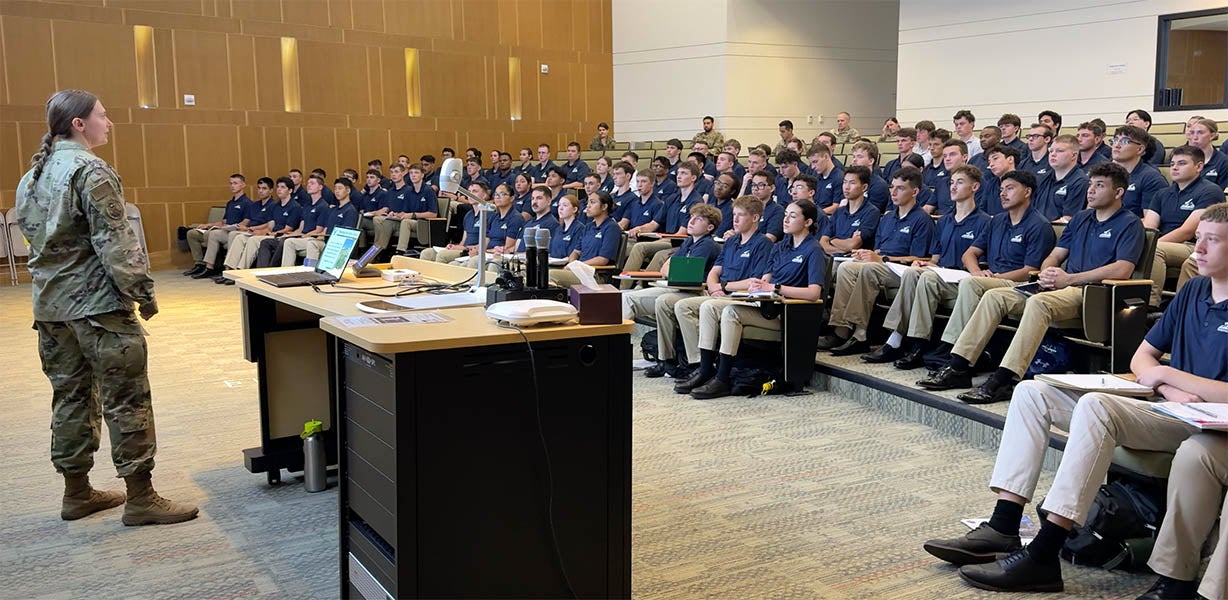
For more than a century, the University of Colorado has served as a launching pad for future officers in the U.S. military through its Reserve Officers’ Training Corps (ROTC) programs, a college-based pathway that combines academic study with leadership development and military training.
CU is the only university in Colorado to host all major branches of ROTC – U.S. Army, U.S. Navy, U.S. Marine Corps, U.S. Air Force and U.S. Space Force – making it a singular hub for military leadership training in the state. Each year, more than 100 students commission as officers through these programs, joining the ranks of those who lead the U.S. Armed Forces.
“ROTC reflects a powerful partnership between higher education and national service,” said U.S. Air Force Col. Rebecca Lange, Air Force ROTC Detachment 105 commander and department chair and professor of aerospace studies at CU Boulder. A 2000 CU Boulder graduate, she now leads the ROTC program that helped shape her career.
“Our cadets enrich the campus through their discipline, academic excellence and deep sense of civic responsibility,” she said.
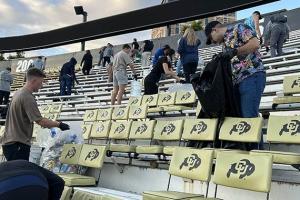
Each ROTC detachment at CU is led and staffed by active-duty military officers who serve dual roles as commanders and academic faculty. These officers are directly involved in the teaching, mentoring and training of cadets through formal coursework, leadership labs and physical training. The instructional teams bring firsthand experience, ensuring students receive not only academic preparation but also the practical insight and discipline needed for military leadership.
Students in ROTC commit to serving in the military after graduation in exchange for scholarship support or program participation, typically fulfilling four to eight years of active-duty or reserve service, depending on their branch and career track.
During their time in the program, cadets are recognized for their outstanding achievements in academics, athletics and student involvement, serving as visible reminders of service and duty within the university community.
Although CU Boulder is the host campus, its ROTC detachments draw students from institutions across the region, including two other CU campuses – CU Denver and UCCS – as well as Metropolitan State University of Denver, Colorado School of Mines and others through formal crosstown agreements. While they complete their academic degrees at their home campuses, students attend military coursework, leadership labs and training activities in Boulder.
CU awards academic credit for ROTC courses only to students enrolled at the university. However, cadets from partner institutions still actively participate in all training, leadership activities and community events within the detachment.
Each detachment brings its own tempo, shaped by branch traditions and the unique callings of cadets who choose to lead on land, at sea, in the air and space. Yet no matter the uniform, the mission remains the same: to prepare students for the weight and responsibility of command.
Air Force ROTC Detachment 105
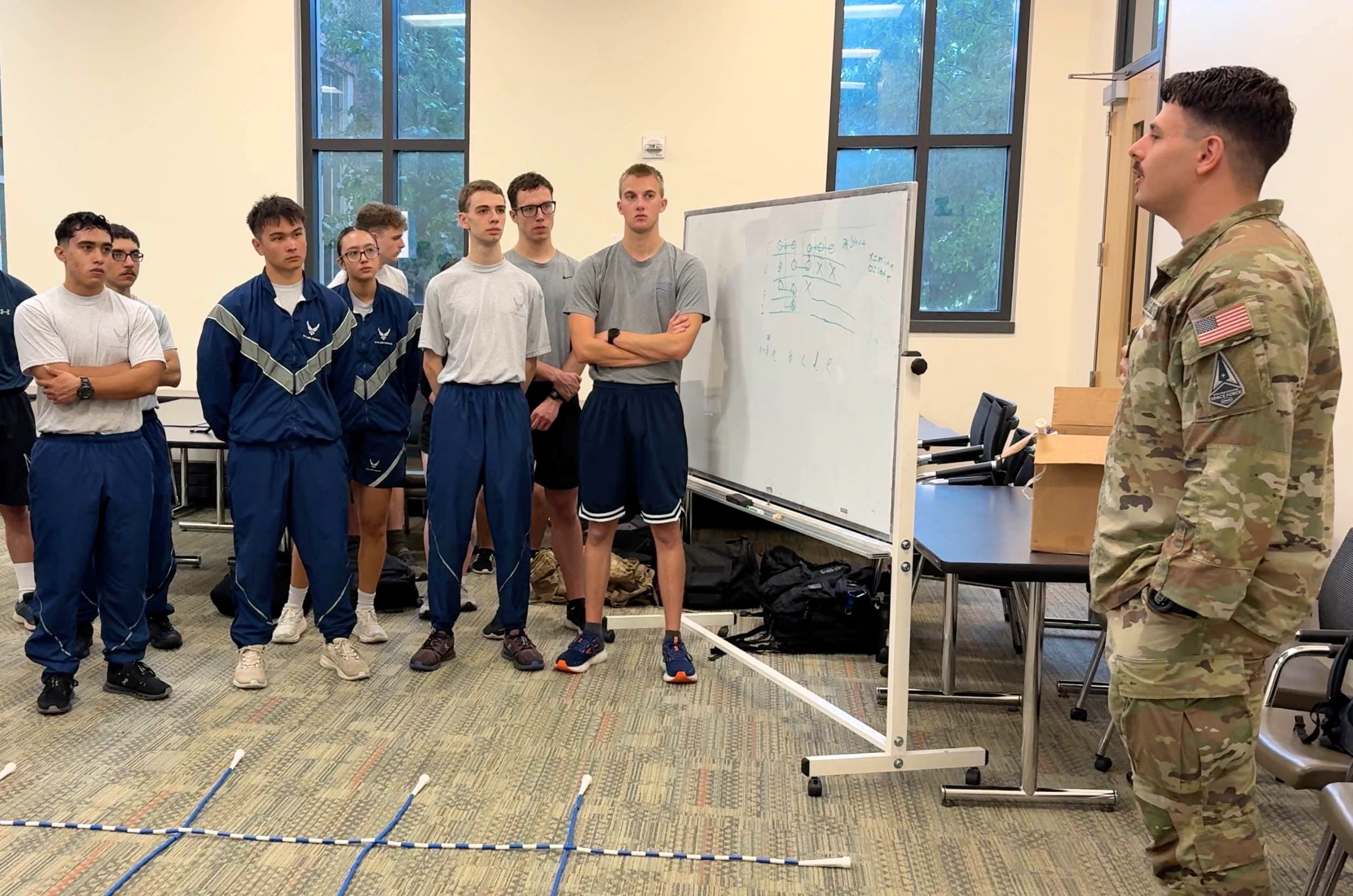
The Air Force ROTC Detachment 105 program, one of the largest in the country, blends academic excellence with military leadership development to transform cadets into resilient, disciplined and collaborative airmen.
During their time at the detachment, cadets are integrated into campus life, participate in clubs, athletics and leadership programs while maintaining rigorous training and coursework.
“In uniform, they are a visible reminder of service opportunities and personal commitment to the cause of freedom,” Lange said. “They inspire a culture of leadership, civic responsibility and public service.”
The program’s academic courses are also open to any CU Boulder student pursuing a leadership minor, expanding its impact beyond the detachment. The program’s leadership minor offers insights into ethical decision-making, communication and civic values.
Army ROTC Golden Buffalo Battalion
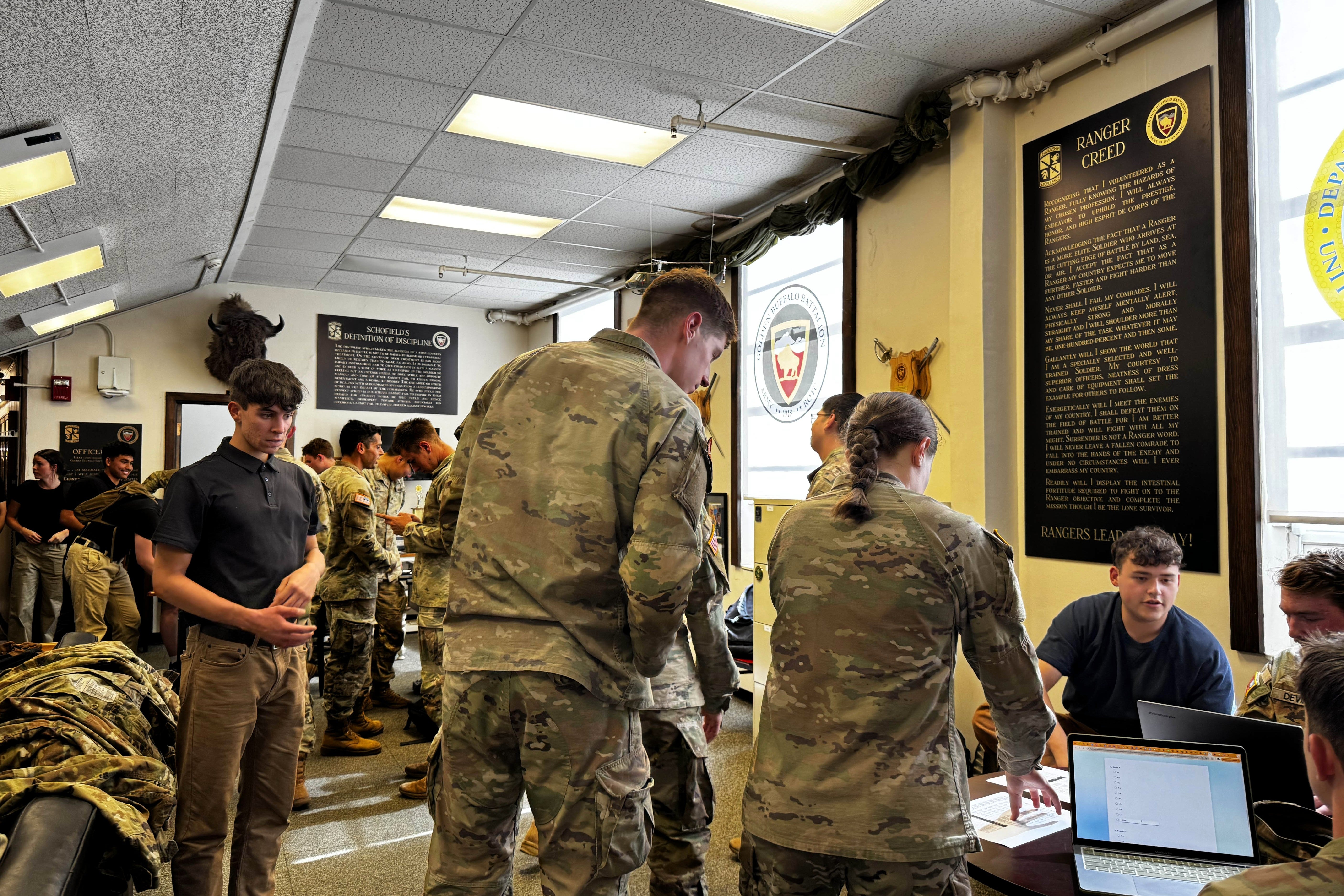
The Army ROTC Golden Buffalo Battalion, the oldest and most established ROTC program on campus, develops adaptive, principled leaders who are prepared to serve in the U.S. Army, U.S. Army Reserve or U.S. National Guard.
The Army cadets train year-round, balancing classroom instruction in military science with early morning physical training, tactical fieldwork and weekend leadership labs. They also participate in regional field exercises and advanced summer training programs that build confidence, critical thinking and team cohesion.
“Our mission is leadership through action,” said Kim Hageman, Army ROTC Golden Buffalo Battalion recruiting operations officer at CU Boulder. “We’re not just preparing officers; we’re preparing principled leaders who bring confidence, integrity and service to whatever path they choose.”
The battalion emphasizes community engagement as much as tactical excellence. Cadets regularly participate in service projects and campus partnerships that reinforce a culture of teamwork and responsibility.
“What makes our cadets unique is their commitment to showing up,” Hageman said. “They're dedicated to leading by example.”
Graduates of the Golden Buffalo Battalion consistently earn top national recognition, with many cadets ranking as Distinguished Military Graduates. These honors are awarded to the top 20% of Army ROTC cadets across the country, based on their academic achievement, leadership abilities, physical fitness and overall performance in training. Equipped with a strong foundation in leadership and service, these cadets go on to lead with distinction in both military and civilian careers.
Naval Reserve Officer Training Corps
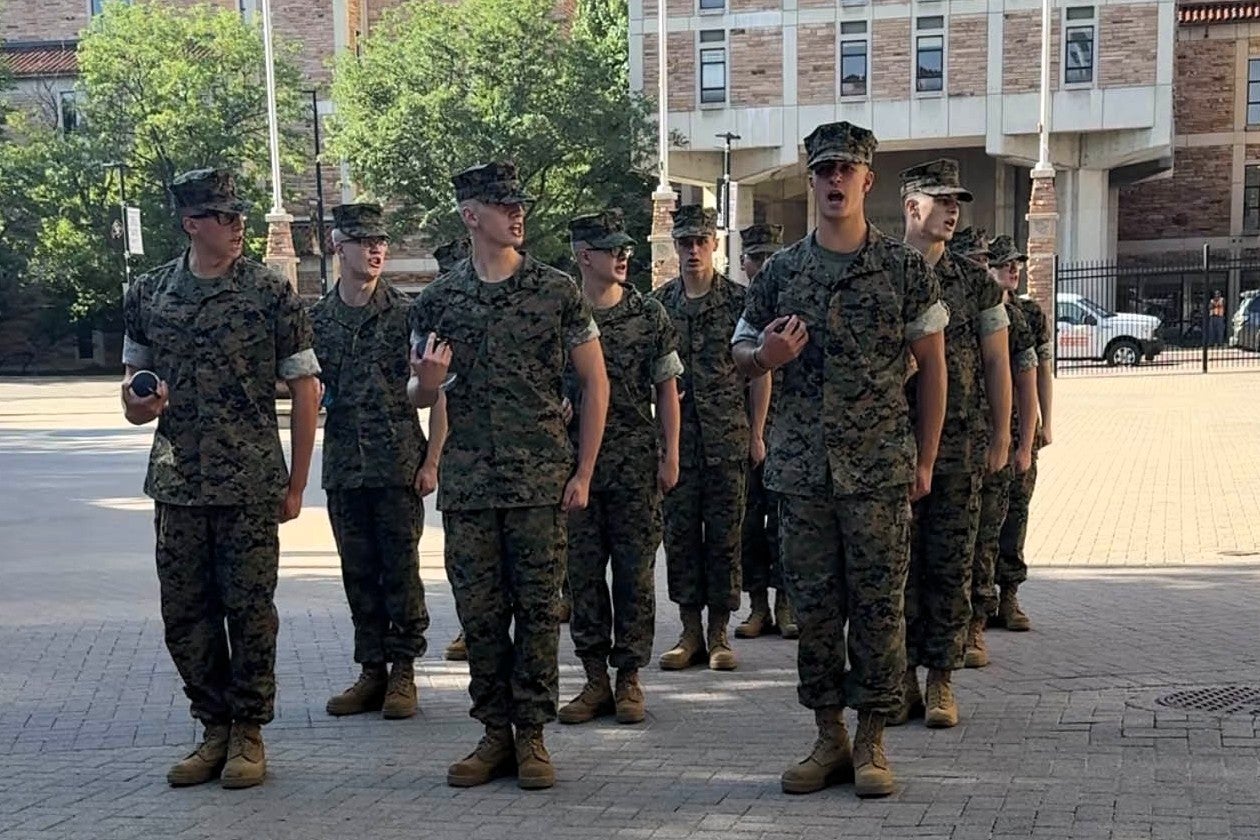
The Naval Reserve Officers Training Corps (NROTC) unit at CU, one of the most distinguished NROTC units in the country, consistently ranks among the top producers of Navy SEAL candidates and Marine Corps officers, second only to the U.S. Naval Academy.
The NROTC prepares students to serve as officers in the U.S. Navy and Marine Corps through a rigorous blend of academic excellence, military training and character development.
The cadets participate in a structured curriculum that includes naval science coursework, physical training, leadership labs and immersive summer training assignments aboard Navy vessels or in the field with the Marine Corps.
“Our mission is to develop young men and women to become officers in the Navy and the Marine Corps,” said U.S. Navy Commander Gary Pembleton, NROTC’s executive officer. “We emphasize their academics, their mental and physical and moral fitness, and we try to develop their character to transform high school students to college students, to future officers of the Marines and sailors.”
The program also hosts the highest number of enlisted Marines in the Marine Enlisted Commissioning Education Program (MECEP) in the country. These experienced service members train alongside traditional midshipmen, bringing leadership and perspective that enriches the entire battalion.
Beyond the classroom, the NROTC program leads large-scale events such as the annual Colorado Meet, the largest ROTC competition in the country, which brings together more than 20 universities and nearly 500 cadets from across the U.S.
“These students are already doing things as undergraduates that rival what they’ll do as junior officers,” Bodisch said. “Their ability to lead, execute and inspire is exactly what this program is built for.”
At CU, ROTC is more than preparation for a commission, it is a daily act of dedication that molds leaders who are ready to serve their country and communities, long after their final formation on campus. ROTC programs at CU don’t just launch military careers; they cultivate lasting leadership. Many alumni transition into government, business, engineering and public service roles after fulfilling their military commitments.
For more information on CU ROTC Programs, click below:
CU Naval Reserve Officer Training Corps

